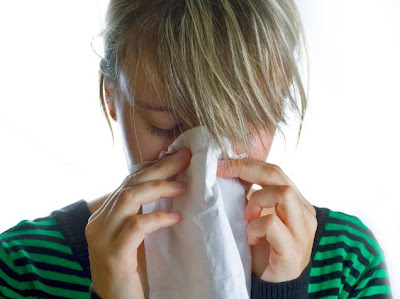The common cold is a viral infection that affects the upper airways including the nose, voice box, throat, windpipes and the lungs.
There are more than two hundred viruses that can cause colds and are commonly known as rhinoviruses or the nose viruses.
These viruses cause inflammation or swelling of the mucous membrane lining the airways.
Early Symptons:
- Early signs of a cold are a sore, scratchy throat, sneezing, and a runny nose.
- Other symptoms are headache, watering eyes, chills, weakness, cough and congestion, fever and muscle ache.
- The symptoms generally last for 2 to 7 days and in some cases may last for weeks.
Simple Ways to avoid cold:
- You should also get plenty of sleep or rest. If you are tired and fatigued, your body's resistance decreases, making you more susceptible to common cold.
- You should avoid drinking milk as it causes mucus to form and coat your throat making it very difficult for you to swallow and cough.
- You should eat spicy foods. Spicy hot foods will cause your body to expel mucus.
- When you eat these types of foods, your nose will start to run and you will begin to cough up mucus.Spicy foods work just like a natural decongestant but without side effects.
- Drinking plenty of liquids can help. Water, juice, clear broth or warm lemon water with honey helps loosen congestion and prevents dehydration.
- A saltwater gargle - 1/2 teaspoon salt in a glass of warm water - can temporarily relieve a sore or scratchy throat.
- Hot Soup is also a better way to rid off cold.
- Avoid alcohol, coffee and caffeinated sodas, which make dehydration worse.
- Dont take any pain relief pills(non-prescribed), wihich may make the situation worst after somedays.

















